20 years of trouble – Remembering the work of Fortuna POP!
Hayley Scott pays tribute to the family mentality of Fortuna POP! with the help of founder Sean Price and musicians released by the label over its honourably unfashionable history
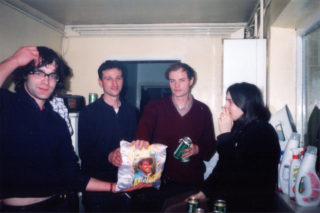
Hayley Scott pays tribute to the family mentality of Fortuna POP! with the help of founder Sean Price and musicians released by the label over its honourably unfashionable history
One thing comes to mind when thinking about the demise of beloved indie pop label Fortuna Pop, which says its goodbyes this month with a string of RIP shows across London: the notorious announcement of the end of Sarah Records in a 1995 issue of Melody Maker that declared via half page adverts that the label’s 100th release (‘Sarah 100’) would be its last. ‘A Day For Destroying Things’ was blazoned across the top in big, bold type, and a lengthy, passionate denouement explaining why it was necessary read: ‘Nothing should be forever… habit and fear of change are the worst reasons for ever doing ANYTHING. Stopping a record label after 100 perfect releases is the most gorgeous pop art-statement ever.’
Similarly, Fortuna Pop’s founder, Sean Price, decided to announce that his own label would be closing its doors after 20 years by means of a letter to the label’s core proponents in an Indietracks festival programme in 2016. Granted, a less bold and costly way of doing things than spreading the news all over half-pages in music magazines at a time when it wasn’t cheap to do so, but it doesn’t make it any less important or bittersweet.
Indeed, Fortuna Pop has a lot in common with Sarah Records. Not only has it released some of the best indie pop records of a generation (including those from Crystal Stilts, The Lucksmiths, Joanna Gruesome and The Pains of Being Pure At Heart), but it also operated in ways that other labels didn’t, by never interfering with artistic decisions, and rejecting trite notions of indie music being a boy’s club by actively championing women. Fortuna Pop had more bands with women in than not, in fact, although rather than that being a conscious decision, Price argues that it is something that should be normalised as opposed to being a novelty. “I haven’t instigated any positive discrimination,” he insists as he looks back on the label he started in 1996. “It’s not like I have some kind of quota, I just find that boys in the band thing a bit of a tired rock’n’roll anachronism. But yes, I think it was important to me for women to be properly represented on the label, if only because they aren’t on other labels and in society as a whole.
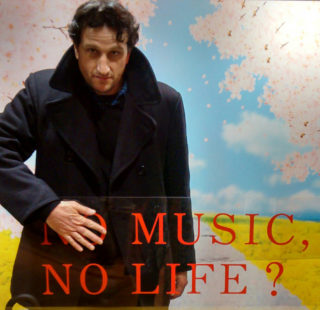
“I believe in feminism and equal rights and if you have those convictions you should put them into action”.
The idea of this being something of note understandably troubles him. “The very idea that this is notable says more about the rest of the music industry than it does about me,” he says.
When I ask Sean outright why he’s decided to close Fortuna Pop now, it’s clear that the ethos of Sarah Records has been an influence, whether subconsciously or not. “I was going to call it quits after 100 releases,” he says, “but then The Pains Of Being Pure At Heart happened and before I knew it I was releasing FPOP101. As someone who values neatness, the idea of stopping after 20 years and 200 releases was very appealing.”
There is a tendency for indie pop fans to get very attached to record labels, collecting everything they put out, and following it like some form of religion.
Fortuna Pop draws from the parentage of other now-defunct labels that we look back on with misty-eyed nostalgia and a feeling of reverence, but it meant just as much, if not more, to Sean himself. “[Fortuna Pop] meant everything, really. I grew up in a small town in the midlands and never felt part of anything, but music and art was my great solace, and the label was a way of being part of that.”
The same goes for all the bands lucky enough to work with the label. Their fondness for Sean and gratitude for the close-knit way in which the label operated is very apparent when I talk to various bands about what the label meant to them. “It felt like family,” says Silvi Wersing of London noise pop band Chorusgirl. “I found everyone to be really friendly, and Sean really held our hands through our debut release, as we didn’t really have any idea how that worked. He was very supportive and never pushy.”
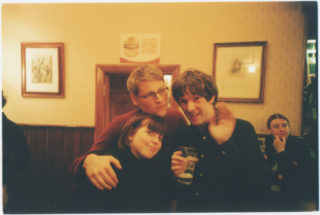
Comet Gain’s David Feck had also nothing but praise for Sean, too.
“Because of Sean it was a label that actually meant something – to the bands on it and their fans. Because of the label, it was all about the purity of purpose and romantic idealism.”
What he says next confirms the assumption of what the atmosphere must have been like working with Sean: funny, often playful, and similar to that of siblings always trying out new tricks to piss each other off, with a heavy dose of lightheartedness at its core. “To me, it meant a perfect way to annoy Sean and STILL get him to buy you beer,” he laughs. “Cheap, horrible warm beer, but beer nonetheless. It also meant if we jokingly said let’s put out a 12-minute dirge on a 12-inch for giggles he’d put it out – and on red vinyl just to spite me.”
“It was always a pleasure to lock horns with someone as grumpy as myself,” says Feck. “Always lovely to watch his beleaguered little face drop as I hand over the latest artwork with coffee stains and bits missing.”
When I ask The Spook School’s Niall McCamley what his funniest memory of working with Sean is, he says: “Meeting Sean for the first time at Indietracks, walking from the festival site to the campsite in the dark. The Todds were walking just ahead and were too shy to look back at him; they didn’t know what he looked like for ages.”
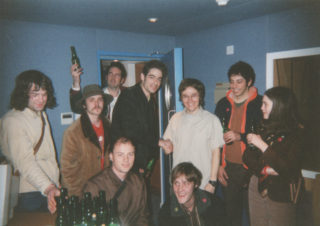
Someone who has worked closely with Fortuna Pop is Mike Schulman of Slumberland Records over in the US. He and Sean started trading releases back in the late ’90s, which led to them co-releasing The Aislers Set’s ‘The Last Match’ in 2000, and then many other subsequent records the following decade.
Schulman immediately found a kinship – a label soulmate – in Sean through the fact that both outposts attempted to foster a family atmosphere and due to the pair of them truly valuing the community that they were part of. “I always felt like Fortuna Pop was a lot like Slumberland,” says Schulman. “We put out pretty unfashionable records and basically refused to follow indie trends.”
I ask everyone I spoke to about Fortuna Pop what made it different to other labels of its kind. As well as Sean’s loyalty, it’s his tendency to negate current trends that comes up time and time again.
Mike Schulman tells me: “Twenty years is a long time to put out records and there is always a tremendous amount of pressure to follow fashion and I think it’s a tribute to Fortuna that it always stuck to its own aesthetic and ethos.”
Sean, meanwhile, has his own idea of why Fortuna Pop operated in ways disparate to its contemporaries. “When I started there seemed to be a lot of little labels out there whose idea of promo was to send one copy to the NME and one to John Peel. I was never like that. Right from the beginning I kept press and radio lists and really put a lot of effort into promotion. So I guess what made us different was ambition. Not ambition to make a lot of money, but an ambition to get the music of the artists on the label to as wide an audience as possible. And I think bands saw that and I was able to attract better bands to the label because of it.
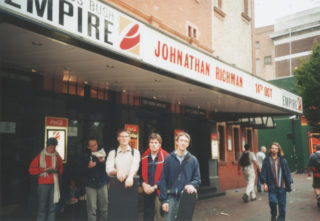
“Oh, and also a foolhardy indifference to the finances involved in running a label. Everything was a loss leader that was going to pay back when the next record was a hit. (It never was.)”
It brings us to the inevitable discussion of what the future is looking like for indie labels, and the general consensus is that, despite DIY culture seemingly flourishing, alongside the supposed ‘vinyl revival’, it’s never been harder for small labels to survive than it is now.
“Of course, the goal of an indie label isn’t to make money,” says Mike Schulman, “but the sad reality is that some of the successes we shared (Aislers, Pains, Allo Darlin’, Crystal Stilts, Joanna Gruesome, etc.) were in some part enabled by being able to sell a certain number and then use that money to pay for radio, press, touring, etc., and to help finance the rest of a label’s operations. Now a lot of us are being forced to scale way back, which is fine in a way but doesn’t help the bands as much, which for me is the whole goal of doing a label.”
Sean doesn’t seem too optimistic about the future of indie labels either, and there’s a sense of relief that comes with stopping right before the onslaught of post-Brexit upheaval. He says: “It’s really tough running an indie label at the level at which we operate and the future only looks tougher.
“A lot of indie labels manufacture in the Czech Republic and the devaluation in the pound and the potential for customs fees following Brexit will make vinyl in particular more expensive.”
Yet despite small labels struggling to operate financially now more than ever, it doesn’t mean independent, DIY culture isn’t thriving. In fact, there seems to be a particularly large swell of great things coming out of local music scenes everywhere, in part catalysed by the current political climate, as argued by Nathan Stephens-Griffin, drummer and vocalist of the FP band Martha. “The world feels too fucking horrible and vicious right now, and the future seems too bleak that it seems trivial to talk about record labels. But at the same time, we need to find that light in the darkness,” he says, “and music and culture can be part of that resistance. To paraphrase Pat the Bunny, punk songs won’t change the world, but I can name a few that changed me.”

Sean agrees that, conversely, independent culture is in a fairly healthy place. “I mean, that’s a very large thing to cover, but from where I’m standing in London there’s a groundswell of DIY music around feminism, LGBTQ rights/gender politics and anti-racism that has as its base a scene around (formerly) Power Lunches and DIY Space For London, places like JT Soar in Nottingham and Empty Shop in Durham, and promoters like Upset The Rhythm. That feels exciting to me, and I’m proud to have worked with bands like Martha, The Spook School and Joanna Gruesome who actually do give a shit and feel immensely important to me in a very real sense.”
If talking to Sean and some of the bands he has supported has taught me anything, it’s nothing I didn’t already gather from the outside looking in – Fortuna Pop was a label of love, a label that valued its artists and stuck by them despite the hardships along the way. What will I miss most about it? The steady stream of good releases, and the warm, comforting feeling that Fortuna Pop will always be a reliable source of good in a world that too often feels like it’s filled with unnecessary bad.
Still, the end of Fortuna Pop is in no way indicative of the death – or dearth – of DIY culture. The cyclical nature of music just means that the label will be filed under ‘inspirations’ for future Sean Price’s – those wanting to make a difference and to be part of something worthwhile.